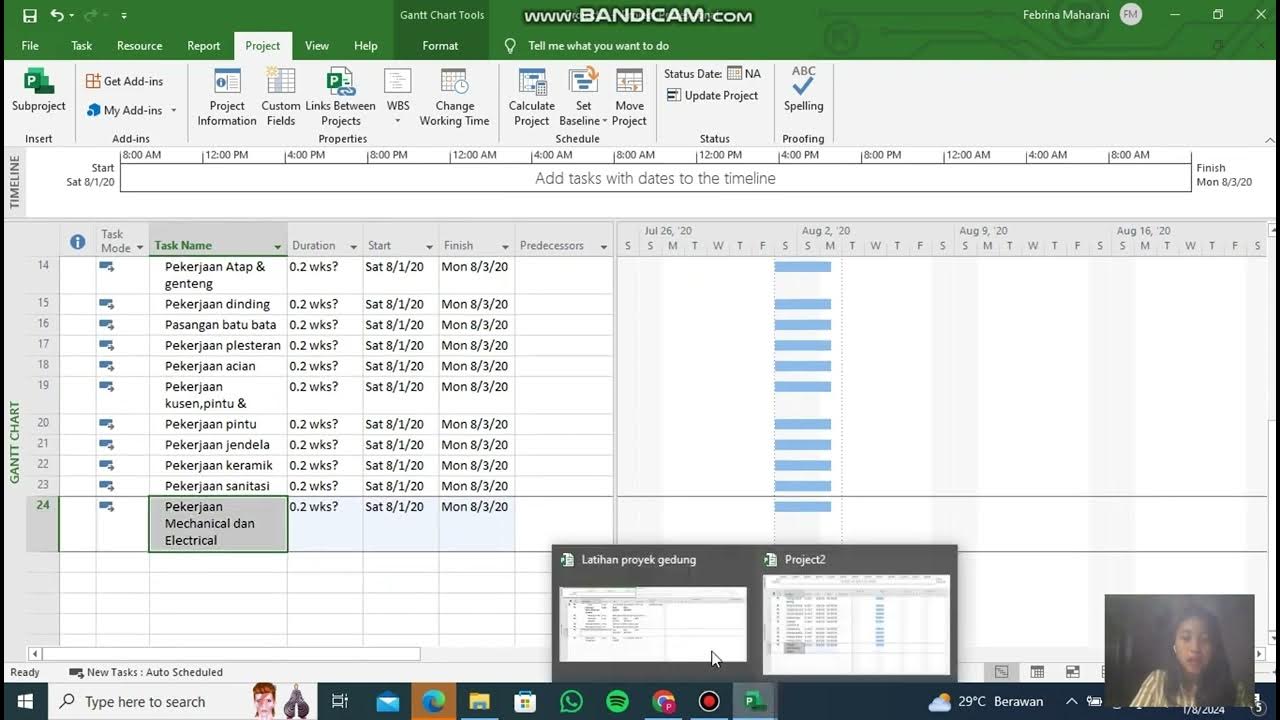How to Write a Project Plan [PROJECT PLANNING STEPS THAT WORK]
Summary
TLDRIn this video, project management expert Adrian shares a step-by-step guide to successfully planning and executing a project. From defining clear project goals and deliverables, to creating a scope statement, confirming the project team, and identifying risks, Adrian outlines how to navigate each phase of project planning. Key steps include setting realistic project timing and budgets, conducting a kickoff meeting, and securing project plan approval before execution. With these proven techniques, viewers can streamline project planning, improve team accountability, and ensure smoother project execution and monitoring.
Takeaways
- 😀 Define project goals and deliverables early to ensure alignment with the project sponsor and avoid misunderstandings.
- 😀 Create a clear scope statement that outlines what’s included and excluded in the project to avoid scope creep.
- 😀 Confirm your project team based on the scope statement, and understand their availability and roles for successful collaboration.
- 😀 Address assumptions and risks at the start by consulting key stakeholders to uncover any potential project roadblocks.
- 😀 Set high-level timing for the project, including key milestones, to provide a roadmap without getting bogged down in details.
- 😀 Establish a project budget early on to ensure that resources and scope match the financial constraints.
- 😀 The kickoff meeting should only happen after all planning work is complete, where you provide the team with all necessary information and materials.
- 😀 Break down the project into manageable tasks and assign responsibilities to team members, ensuring accountability and clear ownership.
- 😀 Get approval for your project plan from senior leadership to ensure alignment on goals, budget, and timelines.
- 😀 Execution is easier when you've done the hard work of planning — a well-structured plan helps the project run smoothly.
Q & A
What is the first step in creating a project plan?
-The first step is to define the project goals and deliverables. You need to understand what the project is aiming to achieve and what tangible outputs are expected. This information should be obtained from the project sponsor to ensure clarity and avoid assumptions.
Why is the Scope Statement so important in project planning?
-The Scope Statement defines the boundaries of the project, including what is in and out of scope. It helps ensure that everyone involved in the project is on the same page and prevents scope creep. Ideally, the sponsor provides this, but if not, the project manager must create it.
How do you determine the right team for your project?
-You determine the right team by referring to the Scope Statement, which will outline the necessary expertise and skills required. It’s important to know whether team members will be full-time or part-time and to understand how their other responsibilities may affect the project.
What role do assumptions and risks play in project planning?
-Assumptions and risks help identify potential issues before the project begins. By discussing these with key stakeholders, project managers can mitigate risks early on and ensure that assumptions do not derail the project later on.
Why is setting project timing a crucial step in planning?
-Setting project timing is important because it helps establish realistic expectations. It’s not about detailed scheduling but about identifying high-level milestones and timelines, which can then be refined as the project progresses. This ensures that you can negotiate deadlines with sponsors if necessary.
How do you handle project costs during planning?
-Project costs should be clearly defined from the start. The project manager needs to understand the available budget and cross-reference it with the scope and deliverables to determine if they align. If the budget is insufficient, adjustments to the scope may be necessary.
When should a project manager conduct a kickoff meeting?
-A kickoff meeting should happen after all the initial planning work has been done. The team needs to be fully briefed on the project’s goals, scope, timeline, and resources before this meeting. The kickoff is not just about announcing the project but preparing the team for execution.
What is the role of a project manager in task management?
-The project manager’s role in task management is to guide and coordinate the team, not to do everything themselves. They help the team break down the project into actionable tasks, assign them, and ensure accountability. Effective task management helps maintain focus on the project’s goals, timeline, and budget.
Why is it important to get project plan approval from senior management?
-Getting approval from senior management ensures that the project is aligned with organizational goals and that resources and support are in place. It also gives decision-makers an opportunity to review and suggest adjustments, ensuring the plan is realistic and achievable.
What happens during project plan execution?
-During project plan execution, the project team begins implementing the plan according to the established scope, timeline, and budget. The project manager oversees the execution to ensure everything goes as planned, addresses any issues that arise, and maintains momentum towards successful project completion.
Outlines

This section is available to paid users only. Please upgrade to access this part.
Upgrade NowMindmap

This section is available to paid users only. Please upgrade to access this part.
Upgrade NowKeywords

This section is available to paid users only. Please upgrade to access this part.
Upgrade NowHighlights

This section is available to paid users only. Please upgrade to access this part.
Upgrade NowTranscripts

This section is available to paid users only. Please upgrade to access this part.
Upgrade NowBrowse More Related Video

Complete Web Design Checklist (SOP) - Start to Finish

How To Create a Project Charter

Penjadwalan Proyek Gedung Menggunakan Ms.Project

SPM(Software Project Management) with real life examples

Mekanisme Manajemen Proyek dalam Pengerjaan Tugas Proyek | Tugas Kelompok 9

What is Project Management? Introduction in 7 Minutes (PMP/CAPM Basics/PMBOK Guide 101)
5.0 / 5 (0 votes)